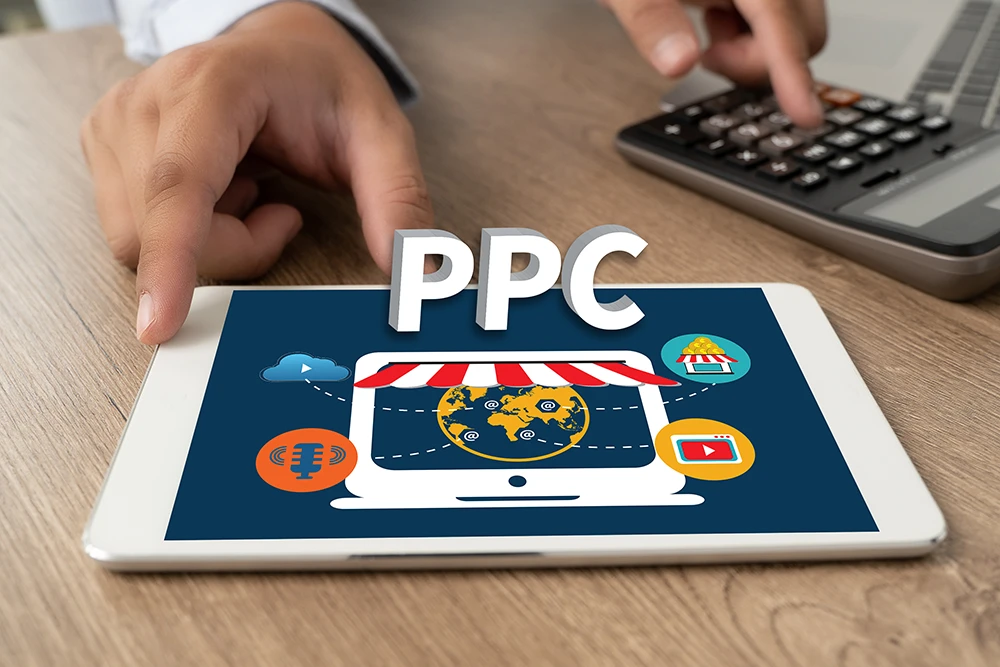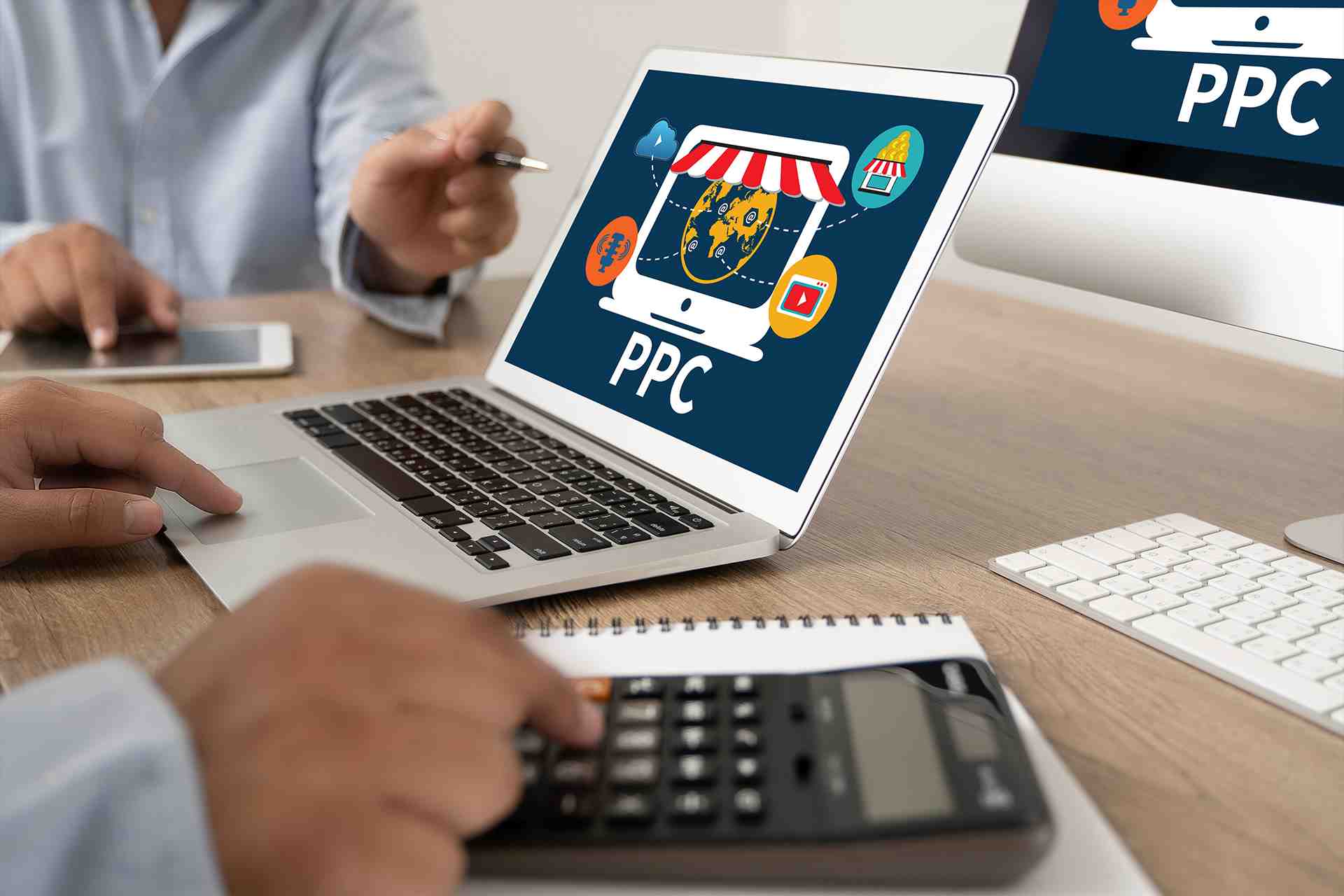Running a small business is already hard enough. You’re watching your money, wearing five hats, and trying to bring in new customers every day. So when someone tells you to try “PPC,” you might think, “Great, another thing to figure out.” But, PPC for small businesses can really work. And it doesn’t have to be complicated.
Let us walk you through what it is, how it helps, and the steps of PPC management for small businesses without wasting time or money.
PPC Services for Small Business: Do They Work?
Yes, PPC for small businesses works, and it works well when done right. With PPC, you pay only when someone clicks on your ad. That means your money goes toward people who are actually interested. You can show up in Google searches, on websites, in Facebook feeds, and on Instagram. You don’t need a giant budget either. Small businesses run solid campaigns every day with just a few hundred dollars a month.
It helps you get noticed faster. Unlike SEO, which takes months to build up, PPC starts working right away. You turn it on, and your ad shows up. You can also choose who sees your ads by age, location, interests, and more.
And here’s the best part. You don’t have to compete with big brands on their level. Instead, focus on your area or your niche. Use keywords that are specific. This lets you get clicks without spending big money. PPC for small businesses works by giving you control, speed, and results you can actually measure. Remember, you can ask a Phoenix Social Media Agency for extra information about PPC for small businesses.
Benefits of PPC for Small Businesses
- You only pay when someone clicks. No charge for just showing.
- Your ad shows up right away and brings traffic to your site fast.
- You can set a budget that fits and choose how much to spend.
- You can pick exactly who sees your ad, targeted by age, location, or interests.
- It helps test new products or offers quickly and see what people like.
- It works well with SEO and social media.
- It gives you real-time results of clicks, costs, and sales instantly.
- It builds your brand in your local area.

How to Manage Your Small Business PPC Campaign
PPC for small businesses takes effort, but when you focus on the right goals, audiences, and messages, it delivers real, trackable growth:
Start PPC management for small businesses by choosing one clear, measurable goal (more phone calls, online purchases, form submissions, or local store visits). Let’s say your goal is to get 20 new customer inquiries a month; that gives you a clear number to work toward and makes tracking much easier.
Now, define your audience:
- Are they young families, homeowners, retirees, busy professionals?
- Where do they live: your city, a few zip codes, or within 20 miles of your store?
- What are they likely searching for?
Instead of assuming, use Google’s keyword tools or even just autocomplete in the search bar to find real search phrases they’re using.
Next comes keyword research. Skip the broad and expensive terms like “bakery” or “gym.” Instead, focus on long-tail, local keywords like “wedding cake bakery in Phoenix” or “affordable personal trainer Arcadia.” These have lower competition, are cheaper per click, and bring people closer to buying.
Now, create your ad. Include a clear headline with your main offer, one benefit, and a call to action. Something like: “Fresh Custom Cakes – Order Today, Pickup Tomorrow – Call Now.” Make sure the ad matches the keyword and search intent.
Your ad should lead to a landing page built for conversion. Send your audience to a page that directly matches your ad. If your ad is for a cake order, the landing page should let them order or call. It should be mobile-friendly, fast-loading, and easy to scan.
For PPC for small businesses, set a realistic daily budget. For small businesses, $10–$30/day is a good starting point. That gives you 300–900 clicks a month if you’re bidding on lower-cost local keywords. Use manual or smart bidding strategies, but monitor your average CPC closely so you don’t burn through the budget too fast.
Tracking is key. Set up conversion tracking through Google Ads, Facebook Pixel, or tools like CallRail or HubSpot. Know where every lead is coming from. Set up goals in Google Analytics and track calls, form fills, or sales tied to each campaign.
Check your campaign data every few days. Look at your click-through rate (CTR), conversion rate, and cost per conversion. Pause or adjust ads that aren’t converting. Test new versions of ads with different headlines or offers. Over time, you’ll see patterns and improve results without raising your budget.
Lastly, add retargeting. These are ads shown to people who visited your site but didn’t convert. You’ve already paid for that visit; don’t waste it. Retargeting keeps your brand in mind and often leads to conversions later at a much lower cost. You can also ask a social media agency for consultation.
PPC Campaign Budgeting for Small Businesses
Start with what you can afford. If you’ve got $300 a month, that’s enough to run a simple campaign. You can check how many clicks cost in your industry. Some are cheap, under a dollar. Others, like lawyers or repair services, can cost several dollars per click.
Use your budget smartly. Focus on fewer keywords that bring better results. Avoid broad or vague words that cost too much. Also, set a daily limit so you don’t overspend. Use automatic bidding tools if you’re just starting out; they can help manage costs while you learn.
And always watch the numbers. Raise your budget only when you see steady results.

Small Business PPC Tips
- Start small and test your ads before spending big.
- Use long and local keywords that match what customers type.
- Block keywords that waste money.
- Make sure your landing page is clear and fast.
- Use short, strong ad copy with a real offer.
- Track everything, such as clicks, calls, and sales.
- Run retargeting ads to people who already visited.
- Try different headlines and test what works best.
- Don’t let your ads run for weeks without checking them.
Click Here to Learn about Best Services for Digital Marketing
Common Small Business PPC Pitfalls
- Launching without clear goals.
- Picking keywords that are too broad or expensive.
- Forgetting to use negative keywords.
- Sending people to a weak or slow landing page.
- Not using tracking tools.
- Letting campaigns run without changes.
- Using only automated tools and ignoring data.
- Missing out on retargeting visitors who didn’t buy.
FAQs
Why is PPC for small businesses important?
It helps small businesses get found fast and reach the right customers without wasting money.
Does PPC work for small businesses?
Yes. When done right, PPC brings leads, sales, and traffic to small businesses with full control over budget.
Does PPC really work?
It does. PPC brings real results if you focus your targeting and manage your budget wisely.
What is the downside to PPC?
If you don’t manage it well, PPC can waste money fast. You need to track it and keep testing.
Is PPC still effective?
Yes. PPC is one of the fastest and most targeted ways to reach customers in 2025 and beyond.





